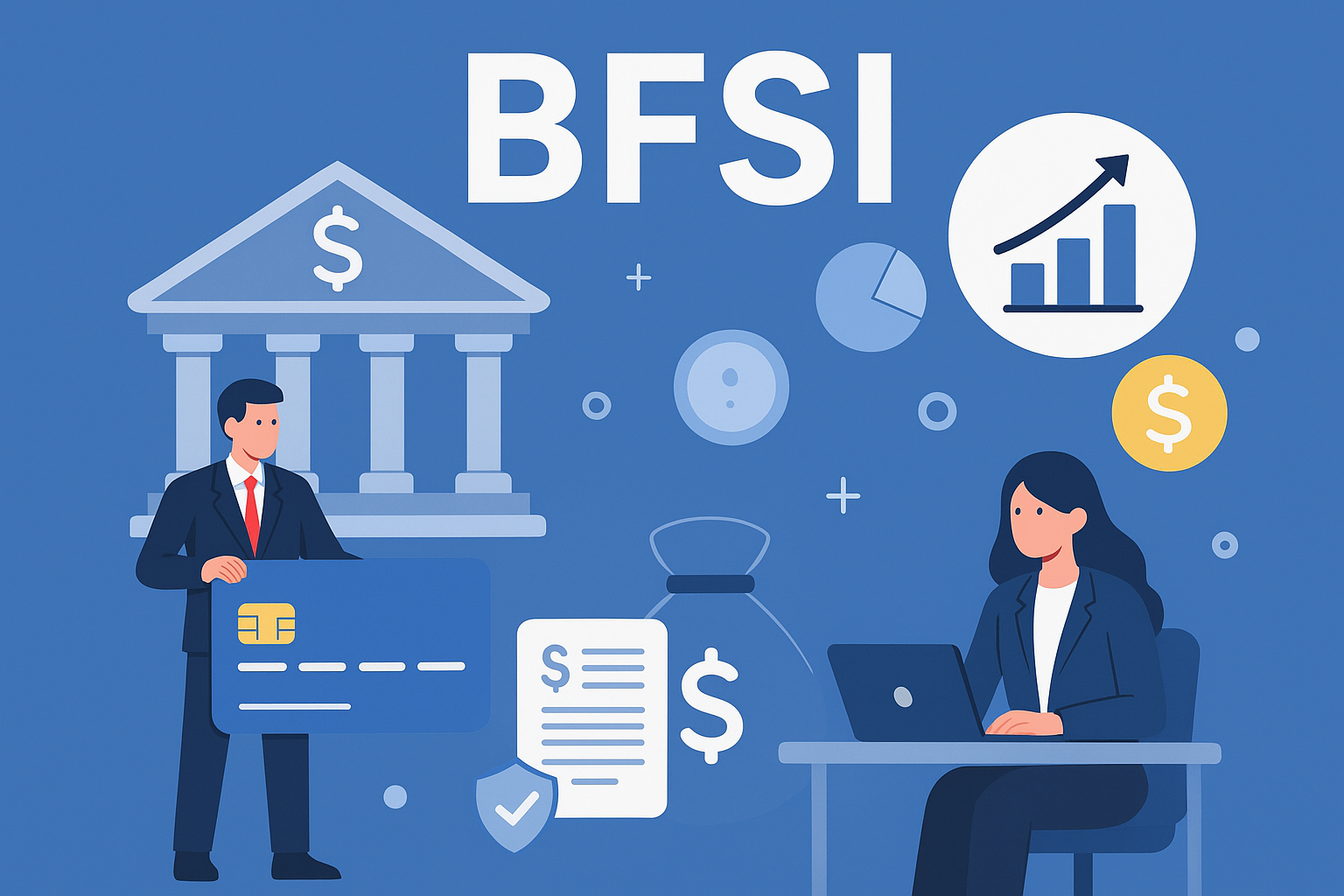
Customer Relationship Management (CRM) in the BFSI Sector
If you’ve ever walked into a bank after a long day, hoping for a quick solution only to be bounced from one counter to another, you know exactly why the BFSI sector treats customer experience like gold.
Finance isn’t just about numbers anymore. It’s about people, trust, speed, and the feeling that someone is genuinely on your side. And that’s precisely where Customer Relationship Management quietly takes centre stage.
What is the BFSI Sector and Why CRM Matters So Much?
The BFSI sector simply refers to Banking, Financial Services, and Insurance. Everything from your savings account to your insurance claim to the investment app you check before breakfast falls neatly under this umbrella.
It’s a massive industry, sure, but it’s also one of the most emotionally charged. Money affects almost every personal decision we make, which means customers expect more clarity, more support, and more personalised interactions than ever.
This is why CRM isn’t just a software tool. In the BFSI Industry, it’s practically a philosophy. It helps institutions understand customer behaviour, predict needs, and offer services that feel like they were created with one specific person in mind.
Why CRM Has Become the Backbone of the BFSI Industry
The truth is, financial products often look the same from the outside. Most banks offer similar loans. Insurance policies overlap. Investment platforms promise convenience. So how does a customer decide where to put their money?
Trust.
And CRM quietly builds that trust every single day.
A strong CRM system helps a bank remember your preferences, notice your patterns, and connect with you at the right moment. Did you look at home loan pages twice today? Expect a tailored conversation instead of a generic offer. Did you just complete a BFSI course and start browsing BFSI jobs? Recruiters and institutions can refine outreach based on your journey.
Every click, every call, every small interaction becomes part of a personalised, guided experience.
How CRM Enhances Customer Experience in BFSI
1. Personalised Financial Recommendations
Nobody wants to receive ten irrelevant offers. CRM cuts the noise. It analyses behaviour, spending habits, and financial goals to offer solutions that actually make sense. Think of it as a personal finance coach that quietly works in the background.
2. Faster Response, Less Waiting Around
Most customers don’t have the patience to sit through endless IVR menus or explain the same issue five times. CRM systems keep all interactions neatly organised, so whether you call, email, or drop a message, the staff knows exactly where you left off.
3. Smarter Risk Management
Banks and insurance companies carry huge responsibilities. CRM tools help them track unusual behaviour, verify customer details, and reduce fraud without making the customer feel judged or pressured.
4. Better Onboarding and Stronger Engagement
First impressions matter. CRM ensures new customers feel welcomed, guided, and supported from day one. Automated follow-ups, simple reminders, and personalised journeys turn the process from overwhelming to effortless.
5. Consistency Across Channels
Whether a customer walks into a branch, uses an app, or chats online, they should have a consistent experience. CRM synchronises all channels so institutions don’t miss a step.
Real-World Example: How CRM Feels in Everyday Life
Imagine applying for a car loan. You fill out a form online. A few hours later, someone from the bank calls, greeting you by name, referring to your exact car model, and offering a rate tailored to your credit history. No repeating your information. No unnecessary questions. Just clarity.
That seamless moment is CRM at work.
CRM’s Growing Importance for BFSI Consulting and Careers
If you’re someone exploring BFSI Jobs or even enrolling in a BFSI course, CRM familiarity instantly gives you an edge. Companies want professionals who understand customer psychology as much as they understand financial products. CRM skills are now considered core knowledge in many BFSI consulting roles because customer-centric thinking drives profitability.
So if you’ve been browsing what is BFSI sector, or weighing up a career shift into the BFSI industry, being CRM-savvy will help you stand out from the crowd.
EMTA: A Trusted Pathway Into the BFSI Sector
EMTA (Elite Manpower & Training Academy) in Indore helps students and job seekers build practical, industry-ready skills for banking, financial services, and insurance roles. With expert-led training and strong placement support, EMTA guides learners toward meaningful careers in the growing BFSI sector.
The Future: CRM Powered by AI, Not Replaced by It
While automation, machine learning, and predictive analytics sound impressive, the real magic lies in empathy. Technology handles the data. Human professionals handle the connection. The BFSI sector will continue to evolve, but the heart of CRM will always be simple: helping people make better financial decisions.
A Final Word
Money is personal. And customers remember how a financial institution makes them feel. CRM helps the BFSI sector stay human in a world that’s getting more digital every day. Whether you’re a student, a job seeker, a consultant, or someone curious about the BFSI industry, understanding CRM gives you a front-row seat to where finance is heading next.
And if you’re planning to build a future in this field, learn CRM deeply. It’s not just a tool. It’s a superpower.
FAQs on CRM in BFSI
Q1. What does the BFSI sector actually include?
Ans. It covers banking, financial services like investment firms, and the insurance industry. Basically, all major financial institutions fall under this category.
Q2. How does CRM help banks?
Ans. CRM improves customer service, personalises banking offers, reduces fraud risk, and streamlines communication across branches and digital channels.
Q3. Are CRM skills useful for BFSI jobs?
Ans. Absolutely. Many BFSI roles now expect candidates to understand CRM systems and customer-centric strategies.
Q4. Is CRM the same as customer service?
Ans. Not exactly. Customer service is one part of it. CRM is a broader system that manages, tracks, and enhances the entire customer lifecycle.
Q5. Does the BFSI industry rely heavily on CRM today?
Ans. More than ever. With customers expecting quick, personalised, and seamless experiences, CRM has become essential for competition and trust-building.










